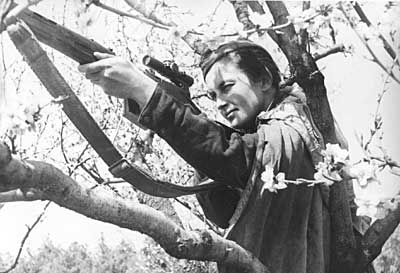I claim no expertise in what I have written. These are only my thoughts. I probably won’t go through the effort of sourcing things, thought I might come back and do it later.
I think the Afghan War was winnable. I say that in the past tense, as I am not at all certain that it can be won now.
A successful insurgency has three principal legs of support. They are: 1) A base of operations that the government cannot reach; 2) support of a foreign entity; and 3) popular support. All three are required in order for the insurgents to win.
The base of operations is necessary for the insurgent forces need a place where they can rest, regroup, train and rearm. Before the rise of air power, that base could be within the territory under dispute. It had to be remote enough that the government forces could not reach. During the American Revolution, the British could not or did not exercise control over the entirety of the thirteen colonies. The rebels could operate everywhere else. Nowadays, the rebels need a neighboring nation that is either sympathetic, in part, to the rebels or is so weak that they can do nothing about the presence of the rebels.
Insurgencies, like any other armed force, need arms, money, and supplies. The American Revolution would have probably failed without the support of nations in Europe, primarily the French, who were interested in stirring up trouble for England. French arms, gunpowder, shot and even several battalions of troops bolstered the cause of the rebels. The French fleet fought the Royal Navy to a stalemate in the Battle of the Chesapeake, which stranded General Cornwallis’s army and led to the surrender of the British at Yorktown.
Popular support does not mean the support of the majority of the population or anywhere near close to it. A minority is enough, maybe 20% or so, provided that an overall majority is not on the side of the government. If, when added to the supporters, enough of the population is indifferent so that the total of the supporters plus the indifferent is a clear majority, that is enough. In the American Revolution, probably no more than a third of the population were active supporters of the rebellion. At least that many were indifferent and only wanted to be left alone. Possibly a quarter to a third of the population were Loyalists.[1]
The battlefield in an insurgency (and in a counter-insurgency) is the people. It is not the lowlands of South Carolina, the farms of Eastern Massachusetts or, for that matter, Helmand Province. It is the people. If one is going to prevail against an insurgency, and truly prevail, not just kick-the-can down the road for another decade or a generation, the government forces must win over the people. This involves something that is very difficult to accept, much less carry out: The government must take a hard look at the grievances of the population which is supporting the insurgency and honestly address them in order to drain the rebellion of the support for a violent insurgency. One can only imagine how history would have been different if the British government in the 1760s had forthrightly addressed the rising tide of grievances being expressed by the Colonists.
The government has to provide the sort of basic services that people expect from a government. Good roads are one, so are education, clean water, security and, where possible, electricity. The government has to provide an honest and fair legal system, one where people have a chance for justice, not one where law enforcement and the judiciary are wholly corrupt and in the pocket of the wealthy. The government itself cannot be overly corrupt. And last, but by no means unimportant, government has to provide a mechanism whereby people’s complaints about the government itself are dealt with in a fair manner.
The problem most governments face is a reliance on conventional armed forces to defeat an insurgency. Armed forces are designed to go into hostile places and break things, to defeat a hostile force on a battlefield, where it is of little import if the battlefield is torn up and devastated by the fighting. But in an insurgency, the battlefield is the people.
Conventional military actions almost always result in civilian casualties. If a man with a rifle hides behind a family’s house and shoots at a government patrol and, in response, the government forces call in an airstrike which destroys the house and the neighboring homes, those families who were displaced will probably blame the government forces. If family members died in the destroyed houses, it is more likely than not that the young men of those families will go to fight for the insurgency. Indeed, it is a tactic of insurgents to provoke government forces into causing civilian casualties.
Armed forces promote officers who are good fighters and who are successful at leading soldiers in combat. A commander may receive a medal or a good evaluation based on a combat action against an insurgent force. Commanders are not given medals for providing potable water to a village. They are not given awards for building and staffing schools. Commanders are not relieved because in an action against insurgents, two villages were destroyed. The destruction of those two villages create more anger against the government and provide fertile soil for the insurgency.
Northern Ireland is, so far, a case study in how to do it right. The Catholic minority had real grievances against the British. The insurgency ended when the British government began to seriously address those grievances. The British have taken pains to make sure that the Catholics feel that they are stakeholders in the governance of Northern Ireland. By doing so, they have drained the support from the Irish Republican Army. There are still some radicals from the IRA who are committing acts of murder and terrorism in order to provoke a heavy-handed response by the British against the Catholic population. So far, the British have not taken the bait.
Sri Lanka is an example of the defeat of an insurgency by denying it a safe haven. The problem for the Sri Lankans is that the government has not addressed any of the grievances of the Tamil minority and indeed, by the actions taken against the Tamil people, have provided the soil for the rise of another insurgency in a decade or a generation. Like the French in Algeria, a victory against a rebel group may lead to ultimate defeat.
We cannot crush the Taliban's bases in Pakistan. We cannot widen the war into Pakistan without inflaming the Pakistani people. Pakistan's army is incapable of doing so. Worse, the Taliban may be funded by Pakistan's intelligence service, which views the Taliban as a counterweight to India, which has provided some support to the current Afghan government. If the Afghan War is to be won, the Afghan people must be won over.
The Afghan War may have been winnable, at one point, but it almost certainly has slipped from our grasp. The current Afghan government is wholly corrupt and thoroughly incompetent. President Karzai has been derided as the “Mayor of Kabul.” There are persistent allegations that his brother is one of the major heroin traffickers in the country. The Afghan police are notoriously corrupt; they have a track record of setting up checkpoints which function mainly as places for the extortion of bribes from travelers. Seven years into the creation of the Karzai government, the Afghan Army is seriously understrength. Afghanistan has several million more people than Iraq, yet the current Iraqi Army is several times larger than the Afghan Army.
The time to make a serious push to bring some development and improvement in the lives of the Afghan people was between 2002 and 2005, but this was almost completely ignored by the Bush Administration. Worse, the Bush Administration and the Karzai government cut deals with various Afghan warlords to provide some level of nominal national flag control over the nation. The result of that was that the warlords were, of course, adverse to any development which strengthened the power of the central government.
Underfunding and underresourcing the security efforts against the insurgents resulted in an unhealthy reliance on air power. There is no such thing as a "surgical strike", air power is a blunt instrument. Dropping bombs on people almost always results in civilian casualties. In a tribal society, where ancient notions of honor and vengeance run strong, killing civilians creates more enemies. Brutal and heavy-handed tactics result in areas where the people are, if not anti-government, unwilling to cooperate with the security forces.
Rampant corruption of both the Karzai government and the local warlords have opened the door to the Taliban. The Taliban are not popular, they were and are a brutal bunch, but their former government provided some things that the Afghan people prized: The Taliban regime was not noted for its corruption, there was reasonable security and there was a rough, albeit brutal form of justice.
We cannot win if our goal is to prop up a kleptocracy. Until the corruption of the Karzai government is dealt with, until the corruption of the Afghan security forces is dealt with, until the warlords are dealt with, then sending more troops to battle the Taliban will be a fool’s errand. The cost of which will be paid for with the blood of American and NATO soldiers and with the blood of the Afghan people.
[1]Their descendants make up the bulk of the GOP and the viewership of Fox News.
Sunday, September 6, 2009
Subscribe to:
Comments (Atom)

